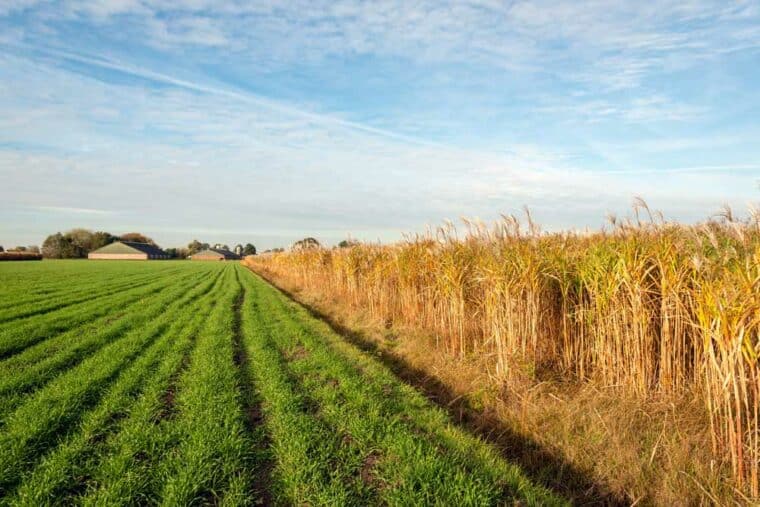Author: Kritika Bhardwaj
A new study has highlighted the danger to food security and climate mitigation of failing to switch to biomass production immediately. The study, published in Nature Climate Change, found that if current trends in land use and food production continue, the world will not be able to meet the growing population’s demands while reducing greenhouse gas emissions. This means that any delay in the uptake of new technologies that can help reduce the impact of climate change on food production could seriously impact food security, and simultaneously, on the potential for future biomass for energy production, in a positive feedback loop. The study’s authors indicate that the only way to meet these goals is to dramatically increase the amount of land devoted to biomass production for energy, including crops and trees. Researchers also estimate that this would need to increase by a factor of two to four by the end of the century and they underscore the urgency of transitioning to a more sustainable model of food production.
According to a new study by the United Nations, the world population is projected to reach 9.8 billion in 2050; therefore, we must find ways to produce more food with fewer emissions. Biomass production is a vital part of this equation, and we must act now to make the switch. The world needs to increase its use of biomass for energy by a factor of four by 2050 to meet climate change goals and ensure food security. Currently, biomass accounts for around 10% of the world’s primary energy supply study found that this needs to increase to approximately 40% by 2050 to meet the goals set out in the Paris Agreement on climate change. The study also found that using biomass can help improve food security, providing the energy source for cooking, heating, and powering agricultural machinery and is a clean, renewable resource that doesn’t release harmful greenhouse gases into the atmosphere.
Thus, many are shifting towards biomass-based carbon removal technologies to reduce atmospheric concentrations of greenhouse gases. Biomass-based carbon removal offers a way to remove carbon dioxide from the atmosphere and store it in a solid form, such as in trees or plants. It is a more sustainable and environmentally friendly alternative and involves using machines to remove carbon dioxide from the atmosphere, which is then stored underground, correspondingly mitigating climate change. Some examples of these technologies include carbon capture and storage, bioenergy with carbon capture and storage (BECCS), and direct air capture (DAC).
BECCS involves using biomass to generate energy while capturing and storing carbon dioxide emissions. It is a crucial technology for meeting negative emissions targets and avoiding dangerous levels of climate change. However, the study finds that the capacity of BECCS to remove carbon dioxide from the atmosphere could decline sharply as the world warms due to reduced biomass feedstocks. Therefore, if the crop yields are reduced, it will directly impact the ability of BECCS to meet the 2°C Paris goal as it relies on crops for its feedstock.
The research also reported, “Future crop yields, however, may decline owing to the detrimental effects of climate warming if strong mitigation actions are delayed, thereby reducing the capacity of BECCS for mitigation.” The study used a global climate model to simulate the effects of a 20-year delay in mitigation from 2040 to 2060. The model showed that a delay in the deployment of BECCS would lead to accelerated global warming, reducing the amount of biomass available for BECCS. In other words, the study’s findings highlighted the need for rapid deployment of BECCS to mitigate the effects of climate change.
The model also suggested that if the world warms by more than 1.5 °C, the risk of hunger could increase by up to 50% in some developing countries and threaten food security. For one, higher temperatures can lead to crop failure as droughts and floods are becoming more common, which can damage crops disrupting food production with increased food prices. Furthermore, extreme weather events are becoming more frequent and intense, making it difficult for farmers to protect their crops. The study also found that the impacts of climate change on food security are likely to be felt most keenly in developed countries. This is because developed countries are more likely to import food from developing countries affected by climate change.
IPCC has also released a report which warns that we have just twelve years to take decisive action to avoid a climate change catastrophe. The report says that to constrain global warming to 1.5°C, we must make “rapid and far-reaching” changes to how we live. The report’s authors say this is necessary to avoid “irreversible” damage to the planet, including more extreme weather events, rising sea levels, and plant and animal species mass extinction. They say that we must reduce our carbon emissions by 45% by 2030 and to net zero by 2050.
Hence, biomass-based carbon removal technology has great potential; in the future, it could become an essential tool in the fight against climate change.
